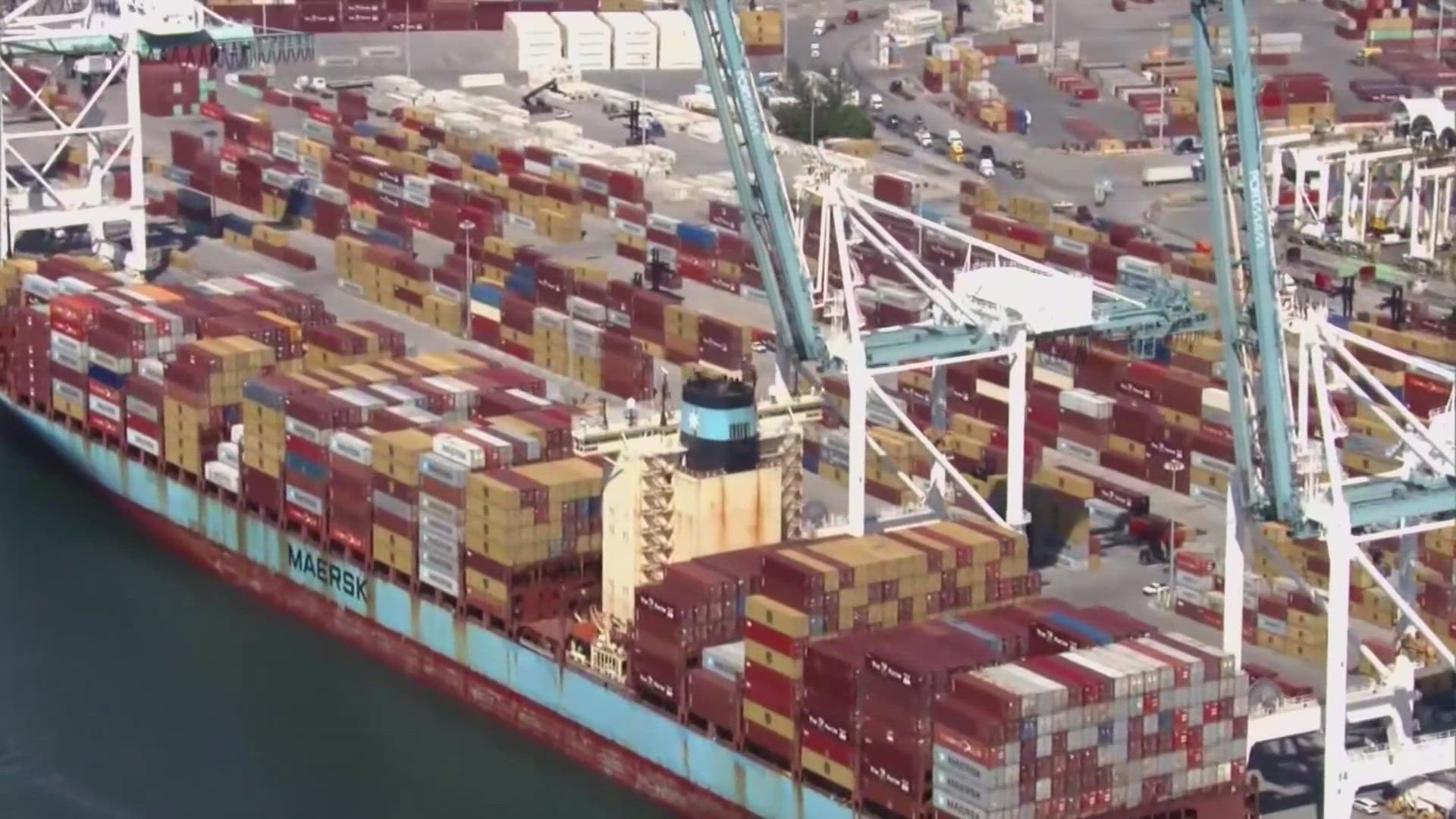PHOENIX — Tens of thousands of dock workers are on strike after a labor agreement lapsed. The strike has shut down all major ports along the East Coast and Gulf Coast, choking off the flow of many of America's imports and exports.
At ports along the East and Gulf coasts, about 40,000-50,000 Union workers with the International Longshoremen's Association are letting their voices be heard with the hopes the United States Maritime Alliance will agree to their demands.
"They really want two things," Dale Rogers said. "They want more money, and they want less automation. The ports would like to reduce those costs and also make the ports more efficient and so you can see automation coming. The big thing these guys are trying to do is slow that down."
Rogers is the ON Semi-Conductor of Business at the Supply Chain Management department at Arizona State University. He said the strike, which began at midnight Tuesday, has been a long time coming.
"Everybody hopes it won't happen, but you know when the end of contract is, you know 5 years ago that September 30th, 2024, the contract is going to end," he said. "So, everybody knew that was the day and they need to make plans for it."
Impacts in the short term are expected to be minimal. Especially because big box retailers, like Walmart and Target, prepared by getting shipments in early.
"Particularly the retailers," Rogers said. "This has been planned for a while. You could see the bubble of inventory coming into the United States."
However, long-term, Rogers said could be disastrous and could potentially cost the U.S. billions.
"So, the East Coast ports count now for 50% and 60% of all volume coming into the United States," Rogers said. "So if the strike lasts long, it could be a substantial impact. Medicine coming from Europe, food products coming from central and south America or Africa or Europe, all that kind of stuff will be impacted."
As of now, it's unclear how long negotiations could last. The ILA workers are not budging.
"Most of the labor unions in the United States have become less powerful in the last four years because we've outsourced and we're getting stuff from out of country," Rogers said. "But the Unions that are guarding the ports, they've become more powerful because more of what we buy here goes through ports. They're going to have to come to an agreement."
Up to Speed
Catch up on the latest news and stories on the 12News YouTube channel. Subscribe today.

